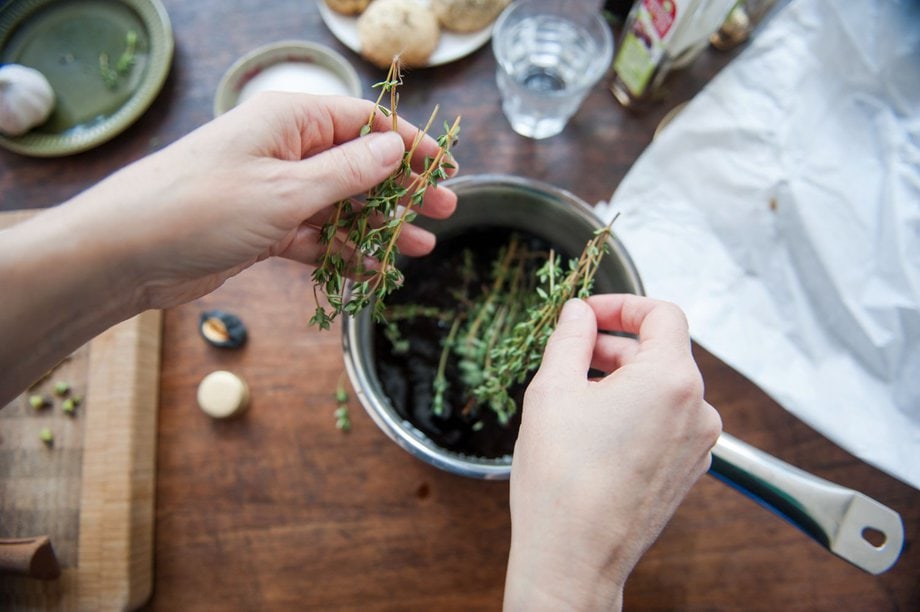What Are The Best Herbal Teas For Hypertension?

Hypertension, commonly known as high blood pressure, is a prevalent health concern worldwide. It is associated with an increased risk of cardiovascular diseases and other adverse health outcomes. While medication is commonly prescribed to manage hypertension, there is growing interest in alternative approaches, such as the use of herbal teas.
Herbal teas have been used for centuries in traditional medicine and are believed to have various health benefits. This article aims to explore the best herbal teas for hypertension based on existing scientific evidence. The selected herbal teas include hibiscus tea, green tea, chamomile tea, hawthorn tea, ginger tea, dandelion tea, olive leaf tea, and lemon balm tea.
By examining the potential effects of these herbal teas on blood pressure, this article seeks to provide insights into their potential role in the management of hypertension.
Key Takeaways
- Ginger tea, dandelion tea, olive leaf tea, and hibiscus tea are some of the best herbal teas for hypertension.
- Ginger tea has potential anti-inflammatory effects and aids in blood pressure management.
- Dandelion tea promotes fluid balance in the body and has diuretic properties.
- Olive leaf tea has antihypertensive effects, improves blood flow, and decreases blood pressure levels.
Hibiscus Tea
Hibiscus tea has been found to have potential benefits for individuals with hypertension.
The tea is derived from the dried calyx of the hibiscus flower, which contains bioactive compounds such as anthocyanins and polyphenols.
These compounds have been shown to have antihypertensive effects by promoting vasodilation and reducing blood pressure.
However, it is important to note that hibiscus tea may have potential side effects.
Some individuals may experience mild gastrointestinal symptoms, such as nausea or stomach discomfort.
Additionally, hibiscus tea may interact with certain medications, including antihypertensive drugs, and may enhance their effects, leading to a further decrease in blood pressure.
Therefore, it is recommended to consult with a healthcare professional before incorporating hibiscus tea into a hypertension management plan.
The recommended dosage of hibiscus tea is typically 1-2 cups per day, steeped for 5-10 minutes.
Green Tea
Green tea, often lauded for its diverse health benefits, has been studied for its potential to positively impact blood pressure levels. It contains polyphenols, which are believed to have antioxidant and anti-inflammatory properties that may promote cardiovascular health. Several studies have suggested that regular consumption of green tea may lead to a decrease in blood pressure.
Here are three potential benefits of green tea for hypertension:
- Antioxidant properties: Green tea is rich in catechins, a type of antioxidant that may help protect against oxidative stress, a known contributor to hypertension.
- Vasodilation effects: Some research suggests that green tea may promote the relaxation of blood vessels, leading to improved blood flow and lower blood pressure.
- Cardiovascular health: Green tea has been associated with a reduced risk of cardiovascular disease, which is often linked to hypertension.
While green tea is generally considered safe for most people, it is important to note that excessive consumption can lead to side effects such as insomnia, stomach upset, and liver problems. It is advisable to consult with a healthcare professional before incorporating green tea into your routine, especially if you have any pre-existing medical conditions or are taking medication.
Chamomile Tea
Chamomile tea, a popular herbal infusion, has been researched for its potential health benefits and its impact on blood pressure levels. Studies suggest that chamomile tea may help lower blood pressure and reduce the risk of hypertension. The tea contains flavonoids, such as apigenin, which have been found to possess anti-inflammatory and antioxidant properties. These properties may contribute to the tea’s ability to improve cardiovascular health and regulate blood pressure. However, it is important to note that more research is needed to fully understand the effects of chamomile tea on hypertension. Additionally, while chamomile tea is generally considered safe, some individuals may experience allergic reactions or side effects such as drowsiness or gastrointestinal discomfort. As with any herbal remedy, it is recommended to consult with a healthcare professional before incorporating chamomile tea into your routine.
| Benefits of Chamomile Tea | Side Effects of Chamomile Tea |
|---|---|
| May lower blood pressure | Possible allergic reactions |
| Possesses anti-inflammatory properties | Drowsiness |
| Contains antioxidants | Gastrointestinal discomfort |
Hawthorn Tea
Hawthorn tea is known for its traditional use in promoting cardiovascular health. It has been used for centuries as a natural remedy for various heart conditions, including high blood pressure.
Research suggests that hawthorn tea may have potential mechanisms for regulating blood pressure, such as improving blood vessel function and reducing inflammation.
Traditional Use for Cardiovascular Health
In traditional herbal medicine, various plant species have been utilized for their potential cardiovascular benefits. Traditional remedies have long recognized the value of herbal remedies for promoting cardiovascular health.
One such herbal remedy is hawthorn tea, derived from the hawthorn plant (Crataegus species). Hawthorn tea has been traditionally used for its cardiovascular benefits, including its ability to support healthy blood pressure levels. Its therapeutic effects are attributed to its high content of flavonoids, which possess antioxidant and anti-inflammatory properties. These bioactive compounds have been shown to improve the dilation of blood vessels, promote healthy blood flow, and reduce the risk of hypertension-related complications.
Moreover, hawthorn tea has been reported to enhance heart function by strengthening the heart muscle and regulating heart rhythm. Overall, the traditional use of hawthorn tea for cardiovascular health highlights its potential as an herbal remedy for hypertension.
Potential Mechanisms for Blood Pressure Regulation
Previous research has explored the traditional use of herbal teas for maintaining cardiovascular health. Building upon this foundation, the current subtopic delves into potential mechanisms by which herbal teas may regulate blood pressure. Understanding these mechanisms is crucial for identifying the best herbal teas for individuals with hypertension.
One potential mechanism is the impact of herbal teas as a dietary intervention. Certain herbal teas contain bioactive compounds such as polyphenols, which have been shown to possess vasodilatory effects, thereby potentially reducing blood pressure.
Additionally, herbal teas may modulate the renin-angiotensin-aldosterone system, which plays a pivotal role in blood pressure regulation.
Another important aspect to consider is the impact of stress on blood pressure. Some herbal teas possess adaptogenic properties, which may help mitigate the effects of stress on blood pressure.
To summarize, potential dietary interventions and the impact of stress on blood pressure are vital considerations when exploring the best herbal teas for individuals with hypertension.
Ginger Tea
This paragraph discusses the subtopic of Ginger Tea, focusing on two key points: its anti-inflammatory effects and its potential for blood pressure management.
Ginger has been shown to possess anti-inflammatory properties, which may help in reducing inflammation in the body.
Additionally, some studies suggest that ginger may have a beneficial effect on blood pressure regulation.
Furthermore, this paragraph briefly mentions the availability of recipes and tips for making ginger tea, providing potential guidance for individuals interested in incorporating this herbal tea into their daily routine.
Anti-inflammatory Effects and Blood Pressure Management
Anti-inflammatory effects of herbal teas can contribute to the management of blood pressure. Herbal remedies for high blood pressure are gaining popularity due to their potential anti-inflammatory benefits.
Chronic inflammation has been recognized as a contributing factor to the development and progression of hypertension. Several herbal teas, such as ginger tea, have been studied for their anti-inflammatory properties and their ability to lower blood pressure. Ginger contains bioactive compounds that have been shown to inhibit inflammation and reduce oxidative stress, both of which are associated with hypertension.
Additionally, ginger tea has been found to enhance the production of nitric oxide, a molecule that helps relax blood vessels and lower blood pressure. These findings suggest that incorporating ginger tea into a hypertension management plan may provide additional benefits through its anti-inflammatory effects.
Recipes and Tips for Making Ginger Tea
Ginger tea can be prepared by steeping fresh ginger slices in hot water for about 10-15 minutes, allowing the flavors and beneficial compounds to infuse into the beverage. This herbal tea has gained popularity not only for its unique taste but also for its numerous health benefits.
Here are a few recipes and tips for making ginger tea:
- Classic Ginger Tea: Slice a 1-inch piece of fresh ginger and add it to a cup of boiling water. Let it steep for 10-15 minutes, then strain and enjoy.
- Ginger Lemon Tea: Add ginger slices and lemon juice to boiling water. Let it steep for 10 minutes, strain, and sweeten with honey if desired.
- Ginger Turmeric Tea: Combine ginger slices, turmeric powder, and black pepper in boiling water. Let it steep for 10 minutes, strain, and add honey or lemon for taste.
Ginger tea is known for its potential anti-inflammatory effects and its ability to aid in blood pressure management. Its consumption may contribute to overall cardiovascular health and act as a natural remedy for hypertension.
Dandelion Tea
Dandelion tea is known for its diuretic properties and its ability to promote fluid balance in the body.
As a natural diuretic, dandelion tea can help increase urine production and remove excess fluid from the body, which may be beneficial for individuals with hypertension.
Additionally, understanding how to harvest and brew dandelion tea is important for maximizing its potential health benefits.
Diuretic Properties and Fluid Balance
With their diuretic properties, certain herbal teas can help maintain fluid balance and potentially reduce hypertension. These teas work by increasing urine production, which helps eliminate excess fluid and waste from the body. By promoting diuresis, they may also have a positive impact on blood pressure levels.
Additionally, diuretic teas can help regulate electrolyte balance, as they increase the excretion of sodium and potassium in the urine. This can be particularly beneficial for individuals with hypertension, as imbalances in electrolyte levels can contribute to high blood pressure.
Incorporating herbal teas with diuretic effects into a balanced diet may therefore be a natural and holistic approach to supporting fluid balance and potentially reducing hypertension.
How to Harvest and Brew Dandelion Tea
To properly enjoy the benefits of dandelion tea, it is important to understand the process of harvesting and brewing this herbal beverage.
Dandelions can be harvested by picking the flowers, leaves, and roots. The flowers should be plucked when they are fully open and vibrant in color, while the leaves should be harvested before the flowers appear. The roots, on the other hand, are best collected in the fall when the plant’s energy is concentrated in them.
After harvesting, the dandelion parts should be cleaned thoroughly to remove any dirt or debris.
To brew dandelion tea, the leaves, flowers, or roots can be dried and then steeped in hot water. This infusion can be enjoyed on its own or mixed with other herbs for added flavor.
Dandelion tea offers numerous health benefits, including its diuretic properties, which can help maintain fluid balance in the body and potentially support healthy blood pressure levels.
Olive Leaf Tea
Olive leaf tea is known for its potential antihypertensive effects and cardiovascular benefits. Studies have shown that the active compounds in olive leaves, such as oleuropein, may help lower blood pressure levels and improve heart health.
When brewing olive leaf tea, it is recommended to use hot water at a temperature of around 200°F (93°C) and steep the leaves for about 5-10 minutes to extract the beneficial compounds.
Serving suggestions include enjoying it plain or adding a slice of lemon for added flavor.
Antihypertensive Effects and Cardiovascular Benefits
Antihypertensive effects and cardiovascular benefits have been observed in several herbal teas. One such tea is olive leaf tea. It has been found to possess antioxidant properties that can help reduce blood pressure levels. Clinical studies have shown that consumption of olive leaf tea can lead to a significant decrease in both systolic and diastolic blood pressure. In addition to its antihypertensive effects, olive leaf tea also offers cardiovascular benefits. It helps improve blood flow and promotes the health of blood vessels, reducing the risk of cardiovascular diseases. To further illustrate the benefits of herbal teas for hypertension, the following table highlights some key findings from clinical studies on different herbal teas.
| Herbal Tea | Antihypertensive Effects | Cardiovascular Benefits |
|---|---|---|
| Olive Leaf | Decreases blood pressure levels | Improves blood flow and vessel health |
| Hibiscus | Reduces systolic and diastolic blood pressure | Lowers cholesterol levels |
| Hawthorn | Lowers blood pressure and strengthens heart function | Enhances circulation and reduces angina symptoms |
| Green Tea | Decreases blood pressure and improves lipid profile | Reduces the risk of heart disease |
In conclusion, herbal teas such as olive leaf tea offer antihypertensive effects and cardiovascular benefits. Incorporating these teas into a balanced diet may serve as a natural approach to managing hypertension.
Brewing and Serving Suggestions for Olive Leaf Tea
Brewing and serving suggestions for olive leaf tea include steeping the leaves in hot water for 5-10 minutes and serving it hot or chilled. Olive leaf tea can be brewed using various techniques to extract its health benefits.
One common method is to bring water to a boil and then remove it from heat before adding the olive leaves. The leaves should be left to steep for 5-10 minutes to allow the beneficial compounds to infuse into the water. After steeping, the tea can be strained and served immediately, either hot or chilled.
To enhance the flavor, honey or lemon can be added. It is important to note that olive leaf tea may have antihypertensive effects and cardiovascular benefits, but consulting with a healthcare professional is advised before incorporating it into one’s routine.
Lemon Balm Tea
Lemon Balm tea, renowned for its soothing properties, has been suggested as a potential herbal remedy for hypertension. This herbal tea, derived from the leaves of the lemon balm plant, is believed to possess various benefits that may help manage high blood pressure.
Lemon balm tea is known for its calming effects, which can promote relaxation and reduce stress levels. This, in turn, may contribute to lowering blood pressure. Additionally, lemon balm tea is rich in antioxidants, which have been associated with improved cardiovascular health.
While there is limited scientific research specifically on the effects of lemon balm tea on hypertension, its potential benefits make it an interesting option for individuals looking for natural remedies.
Incorporating lemon balm tea into a daily routine can be done through simple recipes, such as steeping fresh lemon balm leaves in hot water or adding dried lemon balm to herbal tea blends.
Frequently Asked Questions
Are there any potential side effects or interactions with medication when drinking herbal teas for hypertension?
Potential side effects and drug interactions of herbal teas for hypertension should be considered. While herbal teas may have some efficacy in managing hypertension, it is important to consult with a healthcare professional before incorporating them into a treatment plan.
Can herbal teas alone completely replace the need for prescription medications for hypertension?
Herbal tea alternatives for hypertension may provide some benefits, but they cannot completely replace the need for prescription medications. It is important to understand the limitations of herbal teas in managing hypertension.
How long does it take for herbal teas to show an effect on blood pressure?
The effectiveness timeline of herbal teas in reducing blood pressure varies depending on individual factors, but noticeable effects may be observed within a few weeks of regular consumption. Recommended dosages for herbal teas should be followed as directed.
Are there any specific guidelines on how much herbal tea to consume for hypertension management?
Guidelines for herbal tea consumption in hypertension management are limited. Dosage recommendations vary among different herbal teas. It is advisable to consult a healthcare professional for individualized guidance on the appropriate amount of herbal tea to consume.
Is it safe to consume multiple types of herbal teas for hypertension at the same time?
Combining different types of herbal teas for hypertension management may offer potential benefits such as enhanced blood pressure control and overall cardiovascular health. Factors to consider when choosing the right combination include individual tolerance, potential herb-drug interactions, and practitioner guidance.








